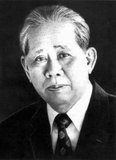Purchase options for this image

Purchase options
Listed below are the purchase options for this image. To make a purchase and add items to your cart, you must be signed in as a registered user of this site.
Product options for this image
CONTACT US DIRECTLY FOR DETAILS OF RIGHTS AND PRICING – $0.00
Please contact us directly with the CPA reference code of image(s) required (eg CPA0024001) and supply the following details:
1. Category = Advertising / Corporate / Documentary / Marketing / Publishing / Retail
2. Territory = World All Languages [unless otherwise specified]
3. Placement = Cover / Inside [for books]
4. Size = Quarter, half, full, double page
5. Digital = Include digital rights or not?
6. Duration = Single Edition / In Perpetuity
7. Print Run = Number of volumes to be printed
All images are available as watermarked high resolution Tiffs or Jpegs on request.
We will respond with pricing details within 24 hours and once payment has been made - by PayPal or Direct Electronic Transfer - we will send the unwatermarked high resolution image(s) immediately.
Please contact us directly for any further information.
Pictures From History
Copyright © 2024, All rights reserved.
Copyright © 2024, All rights reserved.


